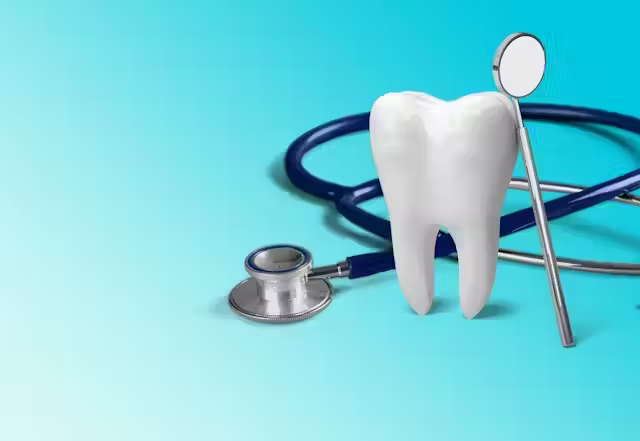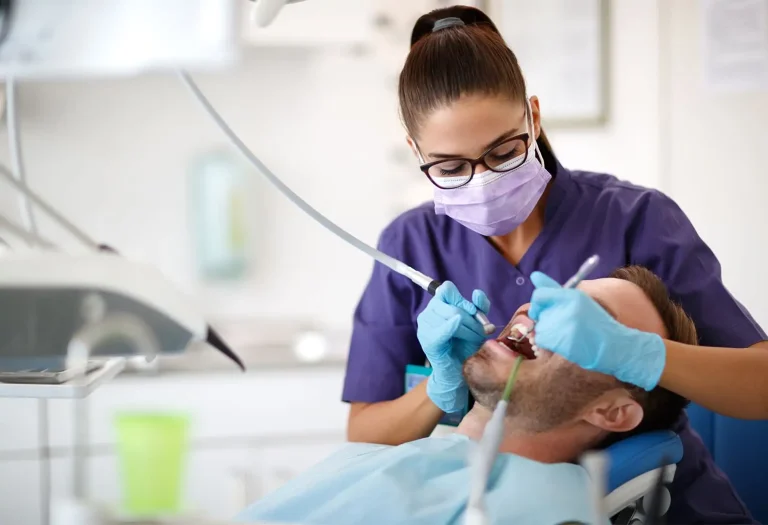The Connection Between Oral Health and Heart Disease: What You Need to Know
The Link Between Periodontal Disease and Cardiovascular Health
You might think your mouth and your heart are worlds apart, but guess what? They’re more connected than you’d imagine. Let’s talk about periodontal disease—also known as gum disease—and how it can play a surprising role in your cardiovascular health.
Periodontal disease is no joke. It’s a serious gum infection that damages the soft tissue and, if left untreated, can destroy the bone that supports your teeth. Sounds scary, right? But here’s the kicker: research shows that people with gum disease are nearly twice as likely to have heart disease. Yep, you read that right. Your gums and your heart are in this together.
So, how does this happen? Well, when your gums are inflamed due to periodontal disease, harmful bacteria can sneak into your bloodstream. These bacteria can then travel to your heart, contributing to the buildup of plaque in your arteries. This condition, called atherosclerosis, can lead to heart attacks or strokes. It’s like a domino effect—starting in your mouth and ending up in your heart.
Think of it this way: your gums are like the foundation of a house. If the foundation is weak or damaged, the whole structure is at risk. The same goes for your body. Healthy gums are the foundation of a healthy mouth, and a healthy mouth is a key player in your overall well-being, especially your heart health.
Still not convinced? Consider this: studies have found that treating gum disease can actually improve markers of heart health, like reducing inflammation in the body. It’s a win-win situation—taking care of your gums means you’re also taking care of your heart.
So, the next time you’re tempted to skip flossing or put off that dental checkup, remember this: your heart might thank you for taking that extra step. After all, a healthy smile and a healthy heart go hand in hand.
How Oral Bacteria Can Affect Heart Health
Alright, let’s dive a little deeper into the nitty-gritty of how something as small as oral bacteria can have such a big impact on your heart. It might sound like something out of a sci-fi movie, but trust me, it’s real—and it’s happening right in your mouth.
Here’s the deal: your mouth is home to millions of bacteria. Most of them are harmless, but when you’ve got gum disease, the bad guys take over. These harmful bacteria can sneak into your bloodstream through bleeding gums or even just chewing. Once they’re in, it’s like they’ve got a free pass to travel wherever they want—including your heart.
When these bacteria reach your heart, they can latch onto damaged areas and cause inflammation. This can lead to a condition called endocarditis, an infection of the inner lining of the heart. But that’s not all. These bacteria can also contribute to the buildup of plaque in your arteries, a process known as atherosclerosis. Over time, this plaque can harden and narrow your arteries, making it harder for blood to flow. And you know what that means—higher risk of heart attacks and strokes.
Think of it like this: oral bacteria are like tiny troublemakers. They start causing chaos in your mouth, and if you don’t stop them, they’ll pack their bags and head straight for your heart. It’s like a bad neighbor who just won’t quit—except this one could seriously mess with your health.
The good news? You’ve got the power to stop them in their tracks. Brushing twice a day, flossing regularly, and keeping up with your dental checkups can help keep these bacteria under control. And when you do, you’re not just protecting your teeth—you’re giving your heart a fighting chance, too.
So, the next time you’re brushing your teeth, remember: you’re not just cleaning your mouth, you’re guarding your heart. And that’s something worth smiling about.
The Role of Inflammation in Both Oral and Heart Diseases
Let’s talk about inflammation—it’s one of those buzzwords you hear all the time, but what does it really mean, and why does it matter for both your mouth and your heart? Spoiler alert: it’s a big deal.
Inflammation is your body’s way of fighting off harmful invaders, like bacteria or viruses. It’s like your immune system’s alarm system—when something’s wrong, it sends out the troops to handle the situation. But here’s the catch: when inflammation sticks around for too long, it can do more harm than good. And that’s where things get tricky.
When you have gum disease, your gums are in a constant state of inflammation. It’s like having a low-grade fire in your mouth that never goes out. Over time, this chronic inflammation can spread beyond your gums and into the rest of your body. And guess what? Your heart is one of the first places it can affect.
Here’s how it works: inflammation in your gums can trigger a cascade of inflammatory responses throughout your body. This systemic inflammation can damage your blood vessels, making them more prone to plaque buildup. And as we’ve already talked about, plaque in your arteries is a major risk factor for heart disease.
Think of it like this: if your gums are constantly inflamed, it’s like having a small fire in your house. Sure, it might start in one room, but if you don’t put it out, it can spread and cause damage everywhere. The same goes for your body—when inflammation gets out of control, it can wreak havoc on your heart.
But here’s the silver lining: by taking care of your gums, you can help reduce inflammation throughout your body. Regular brushing, flossing, and dental checkups are like having a fire extinguisher on hand—they can help put out the flames before they spread.
So, the next time you’re tempted to skip your dental routine, remember this: you’re not just protecting your gums, you’re helping to keep inflammation in check. And that’s a win for your heart, too.
Preventive Measures to Maintain Both Oral and Heart Health
Alright, let’s get practical. We’ve talked about the connection between your mouth and your heart, but what can you actually do to protect both? The good news is, it’s not rocket science—it’s all about building healthy habits and sticking to them. Here’s your game plan:
Brush and Floss Like a Pro
This one’s a no-brainer, but it’s worth repeating. Brush your teeth twice a day with fluoride toothpaste, and don’t forget to floss daily. Flossing is like the unsung hero of oral health—it gets rid of plaque and bacteria in places your toothbrush can’t reach. Think of it as giving your gums a little extra love.
Don’t Skip Your Dental Checkups
Regular dental visits aren’t just about getting your teeth cleaned (though that’s a nice bonus). Your dentist can spot early signs of gum disease and help you address them before they become a bigger problem. Aim for a checkup every six months, or as often as your dentist recommends.
Watch What You Eat and Drink
Sugary snacks and drinks are like a feast for harmful bacteria in your mouth. Cutting back on sugar can help keep those bacteria in check. Instead, load up on heart-healthy foods like fruits, veggies, and whole grains. Bonus: these foods are great for your teeth, too.
Kick the Habit (If You Smoke)
Smoking is a double whammy—it’s bad for your gums and your heart. If you smoke, quitting is one of the best things you can do for your overall health. Need help? Talk to your doctor or look into smoking cessation programs.
Stay Hydrated
Drinking plenty of water isn’t just good for your body—it’s great for your mouth, too. Water helps wash away food particles and bacteria, and it keeps your saliva flowing. And saliva? It’s like your mouth’s natural defense system.
Manage Stress
Believe it or not, stress can take a toll on both your oral and heart health. When you’re stressed, you’re more likely to grind your teeth or skip your oral hygiene routine. Find healthy ways to manage stress, like exercise, meditation, or even just taking a few deep breaths.
Here’s the bottom line: taking care of your mouth isn’t just about having a bright smile—it’s about protecting your heart, too. So, the next time you’re brushing your teeth or scheduling a dental appointment, remember: you’re not just investing in your oral health, you’re investing in your overall well-being.
And hey, why not start today? Your heart (and your dentist) will thank you.
Conclusion
So, there you have it—the surprising, yet undeniable connection between your oral health and your heart. Who would’ve thought that something as simple as brushing your teeth could have such a big impact on your cardiovascular health? But here’s the thing: your body is one interconnected system, and what happens in your mouth doesn’t stay in your mouth.
From the link between gum disease and heart disease to the role of inflammation and harmful bacteria, it’s clear that taking care of your teeth and gums is about more than just avoiding cavities. It’s about protecting your heart, too. And the best part? The steps you need to take are simple, straightforward, and totally doable.
So, what’s your next move? Maybe it’s scheduling that dental checkup you’ve been putting off. Or maybe it’s committing to flossing every night (yes, every night). Whatever it is, remember this: every small step you take toward better oral health is also a step toward a healthier heart.
The next time you pick up your toothbrush, think of it as more than just a tool for a brighter smile—it’s your secret weapon for a healthier you. Because when it comes to your health, every little bit counts.
So, tell me: what’s one thing you’ll do today to take better care of your smile—and your heart? Let’s start the conversation and keep it going. Your heart (and your dentist) will thank you!
FAQs
Q: How are oral health and heart disease connected?
A: Bacteria from gum disease can enter the bloodstream and contribute to inflammation in the heart and blood vessels, increasing the risk of heart disease.
Q: What specific oral health problems are linked to heart disease?
A: Primarily, gum disease (periodontitis) and gingivitis are the most strongly linked to an increased risk of heart problems.
Q: Can poor oral hygiene directly cause heart disease?
A: While poor oral hygiene increases the risk, it’s not a direct cause. It’s a contributing factor that can exacerbate existing heart conditions or increase the likelihood of developing them.
Q: What bacteria are involved in the connection between oral health and heart disease?
A: Bacteria like Streptococcus sanguinis are able to attach to platelets and initiate thrombus formation which can result in clots and cardiovascular events.
Q: What heart conditions are most commonly associated with poor oral health?
A: Atherosclerosis (plaque buildup in arteries), endocarditis (inflammation of the heart’s inner lining), and an increased risk of stroke are the most common associations.
Q: How can I improve my oral health to protect my heart?
A: Brush twice daily, floss daily, use an antiseptic mouthwash, and get regular dental checkups and cleanings.
Q: Are there specific symptoms I should watch for that indicate a link between my oral health and heart health?
A: Look for signs of gum disease like bleeding gums, persistent bad breath, loose teeth, and receding gums. Report these to your dentist and doctor.
Q: Does treating gum disease reduce my risk of heart disease?
A: Treating gum disease can help reduce inflammation and bacterial load in the body, which may lower the risk of heart problems, but more research is ongoing.
Q: Are some people more at risk than others for this connection between oral health and heart disease?
A: Yes, individuals with existing heart conditions, smokers, diabetics, and those with poor oral hygiene are at higher risk.
Q: What should I tell my dentist and doctor about my oral and heart health?
A: Inform both your dentist and doctor about your complete medical history, including any heart conditions, medications you’re taking, and any oral health issues you’re experiencing. This allows them to provide the best, most coordinated care.







